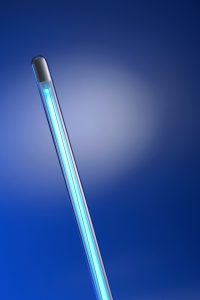 It depends, actually. Various kinds of air filters and air purifiers exist, but they’re not all made with the exact same purpose in mind. Although some of their functions do overlap, it’s more about finding out which one makes sense for you and your home.
It depends, actually. Various kinds of air filters and air purifiers exist, but they’re not all made with the exact same purpose in mind. Although some of their functions do overlap, it’s more about finding out which one makes sense for you and your home.
For the average homeowner, you just need to make sure that you’re getting the right kinds of treatment for your unique needs. Allow us to explain:
Why Need Them at All?
For a family with relatively healthy immune systems, they might not have any honest need for an air treatment system. But for anyone who suffers from allergies, asthma, or a weaker immune system, air treatment is going to make all the difference.
The particles blocked out by air filters are often responsible for short-term symptoms, such as allergies, dry throat or nose, and eye irritation. Meanwhile, air purifiers tend to eliminate the contaminants that are produced by toxic chemicals and can contribute to long-term damage and illnesses.
Even so, there is plenty of overlap between the two systems and types of contaminants. A good way to approach the situation is by installing both systems in your home. Even better, however, is to have your air quality tested by an indoor air quality expert in Fort Wayne, IN. They’ll be able to see what kind of particles are plaguing your air circulation and can help you make an informed decision.
Air Filters
Air filters are mesh screens installed in your HVAC system. As air passes through them, the screen will block out particles that are larger than the mesh holes. This includes contaminants like pollen, pet dander, dust, dirt, and more.
Where these filters vary is based on the size of those holes, a factor that’s measured as the Minimum Efficiency Reporting Value (MERV) rating. MERV ratings are graded on a scale of 1 to 20; a higher rating indicates smaller holes.
Filters with MERV ratings above 16 will capture more than 70% to 90% of small particles, making them ideal for places like hospitals. However, high rated filters are of such a fine grade that they’ll actually restrict airflow and decrease efficiency. For homeowners who are conscientious about their air quality, they should opt for something between 7 and 12.
Air Purifiers
While air filters are great at blocking out physical particles, purifiers can eliminate pollutants that can’t be captured by filters. Purifiers will help remove smoke, odors, chemicals, and even microorganisms from your air circulation. They come in two different types:
Electronic Air Purifiers: These purifiers use ionization to send a static charge through the air. The pollutants are captured, collected onto a plate, and then washed off later. Although highly effective, they’ll eventually need maintenance or to have their parts replaced annually.
UV Air Purifiers: In order to eliminate germs, bacteria, and viruses, a normal electronic air purifier is not enough. The addition of a UV light bulb makes all the difference. UV air purifiers will either kill germs outright or disable their ability to reproduce.
